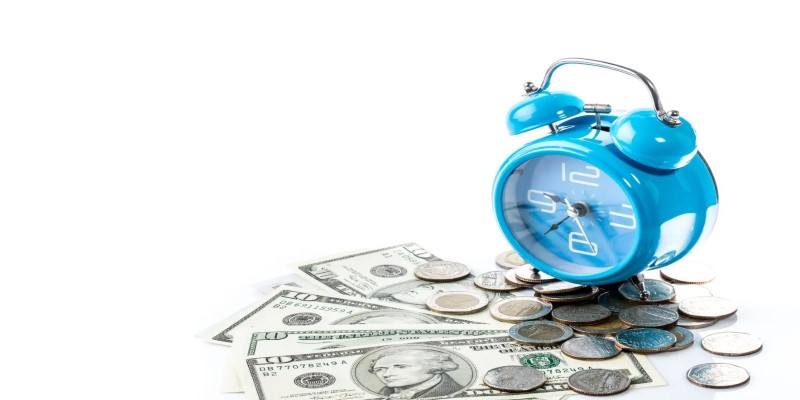Callable CDs: A Deep Dive Into This Unique Investment Option
Sep 19, 2024 By Elva Flynn
In today's financial world, choosing the right investment can be challenging. Callable Certificates of Deposit (CDs) have caught the attention of many investors due to their potentially higher returns. However, they come with unique features that set them apart from traditional CDs. Suppose you're wondering whether a callable CD is a good fit for your investment strategy. In that case, this article will help clarify how they work, the potential risks, and what to consider before making a decision. Let's dive into the details to see if callable CDs align with your financial goals.

What Is a Callable CD and How Does It Work?
A callable Certificate of Deposit (CD) is a financial product offered by banks that allows them to "call" or redeem the CD before it reaches its maturity date. This type of CD works like a traditional CD in that you invest a sum of money for a specific period, earning a fixed interest rate over that term. However, the key difference with a callable CD is that the bank retains the right to close the CD early, usually after a certain period of call protection has passed.
When a bank issues a callable CD, it typically comes with a higher interest rate than regular CDs to make the product more appealing to investors. The catch is that after the call protection period (which can range from six months to several years), the bank can return your principal and any accrued interest, ending the CD before the original maturity date. If the bank exercises this option, they return your money along with the interest earned up until the call date, and you'll need to reinvest the funds elsewhere.
Callable CDs are often sold with specific terms and call dates, meaning that after a certain point, the bank may review market conditions and decide whether to call the CD or let it mature as originally agreed.
Why Do Banks Call Callable CDs Early?
The primary reason banks call callable CDs early is to protect themselves against changing interest rates. When interest rates fall in the broader economy, it becomes more expensive for banks to maintain CDs that pay higher interest rates, like callable CDs. By calling the CD, the bank can return your funds and issue new CDs at the current, lower interest rates, reducing their overall interest expense.
For example, lets say you invested in a callable CD with a 5% interest rate, but a year later, the average interest rate drops to 3%. The bank now has an incentive to call your CD so that they can reissue CDs at the lower 3% rate. This way, they save money on interest payments. While this move benefits the bank, it could leave you as the investor in a less advantageous position, especially if you now need to reinvest your funds in a lower interest rate environment.
Callable CDs are, therefore, a risk management tool for banks. They pass some of the interest rate risk to the investor, which is why callable CDs tend to offer higher interest rates initiallythey compensate you for the risk that your CD could be called early.
Advantages and Drawbacks of Callable CDs

Callable CDs offer several advantages, particularly for conservative investors seeking higher interest rates than standard CDs or savings accounts. The key benefit is that callable CDs often come with an initial interest rate that is higher than what you might find with other low-risk investments. This makes them appealing to investors who are looking for a safe way to grow their money without diving into the more volatile world of stocks or mutual funds.
Another benefit of callable CDs is their FDIC insurance. Like traditional CDs, callable CDs are insured by the FDIC up to $250,000 per depositor per bank. This insurance provides a significant level of safety for your principal investment, making callable CDs a relatively secure option compared to riskier financial products.
However, there are some important drawbacks to consider. The most significant risk is that your CD could be called early, especially during a period of falling interest rates. If your callable CD is called, youll be forced to reinvest your money, often at a lower interest rate than what you initially locked in. This reinvestment risk can affect your long-term savings strategy, particularly if you're relying on higher interest income.
Is Investing in a Callable CD Right for You?

Whether or not a callable CD is the right investment for you depends on your financial goals and your tolerance for reinvestment risk. Callable CDs are best suited for conservative investors who want to earn a higher return than they would with traditional CDs but are still seeking the safety of FDIC insurance. Suppose you're someone who prioritizes stability and is okay with the possibility that your CD could be called early. In that case, a callable CD might be a suitable addition to your portfolio.
However, if youre counting on the higher interest rate for the entire term of the CD, you may want to consider the potential consequences of it being called early. If interest rates drop significantly, your callable CD could be called, leaving you to reinvest at a lower rate. This could be a problem if your financial strategy relies on consistent, predictable interest income.
Additionally, if you think you might need access to your funds before the maturity date, you should carefully review the terms of the callable CD. Although callable CDs offer a higher return, their potential for being called or tying up your money for extended periods can be a drawback if liquidity is important to you.
Conclusion
Callable CDs offer higher interest rates than traditional CDs but come with the risk of being called early by the bank. This can lead to reinvesting at lower rates, so its important to consider your financial goals, liquidity needs, and risk tolerance. Callable CDs can be a good option for conservative investors seeking a balance between safety and higher returns. However, they require careful thought to determine if they align with your long-term investment strategy.

Investment
Follow-on Public Offer
After an initial public offering (IPO), there may be further issuing of shares via what is called a follow-on public offer (FPO), sometimes known as a secondary offering (IPO). Companies often announce FPOs to raise equity or lower debt.
Learn More
FinTech
Epic Systems Introduces 100+ AI Features for Healthcare Innovation
With more than 100 new AI features, Epic Systems is improving healthcare by increasing productivity for physicians and patients.
Learn More
Banking
Clearing Up Your ChexSystems Report
ChexSystems is used to provide necessary information about how deposit accounts, such as checking and savings accounts, are used by consumers. This information is fed to their database by financial institutions like banks and credit unions or companies where said accounts were used to make purchases. We lay out the necessary steps you would need to take if your ChexSystems report is not what you expected.
Learn More
Know-how
The 7 Golden Rules for Having More Money for Your Golden Years
Explore the top strategies for enhancing your retirement savings, including starting early, diversifying investments, and cutting costs.
Learn More
Know-how
What Is Tuition Reimbursement And Tuition Reimbursement Requirements
Learn what tuition reimbursement is, the pros and cons of offering it to employees, and tips to consider when setting up this program.
Learn More
Business
Leading with Vision: The Rising Influence of Women Business Owners
This article explores the impact of women entrepreneurs in male-dominated industries, their influence on the global economy, and challenges they face, while promoting gender equality.
Learn More